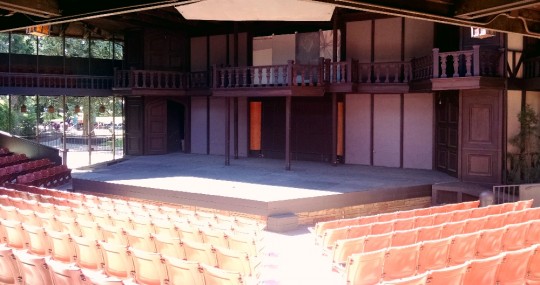Widgetized Section
Go to Admin » Appearance » Widgets » and move Gabfire Widget: Social into that MastheadOverlay zone
Setting the Stage for Experiential Education
The views expressed are those of the author and do not necessarily reflect the views of ASPA as an organization.
By Angela Pool-Funai
July 19, 2016

Faced with a potential upheaval of the precarious balance that had kept his little village in check for generations, Tevye the poor milkman (and narrator of “Fiddler on the Roof”) reminds the audience in the musical’s opening scene that tradition is the linchpin for a proper community. Although traditions dictate occupations, religious practices, gender roles and especially matrimony, Tevye even admits that he does not know the origin of many of the customs that he holds so dear.
Tradition reaches far beyond Broadway musicals. Our educational practices are deeply rooted in the practices of generations before, often for no other reason than familiarity. For example, do you know why the typical high school science curriculum in the United States teaches biology, chemistry and physics, in that order? The answer is simply because that’s the way we’ve always done it – at least since 1893. In the early 1990s, the Physics First movement began gaining traction to rearrange the sequence of courses, but tradition still rules in most schools across the nation.
It took a century for people to seriously question the context of high school science courses, but this phenomenon is certainly not limited to the sciences. We could take snapshots across the disciplines to find similar examples of outdated curriculum designs and classroom methods in other fields. Nor is the problem specific to secondary school. Higher education has been guilty of sticking to old ways under the guise of tradition as well.
In a recent faculty forum on project-based learning, Randy Bass (vice provost for education and professor of English at Georgetown University and a leading voice in the experiential learning community) posed this question to the audience: If we were designing higher education for this moment in history, what would it look like?
Would we focus on content absorption or would we consider the context of the curriculum? If memorizing facts and figures is the goal, then the old-school method of lectures and recitation suffice and we need not waste time on project-based learning. However, if our aim is to help students ascertain the context of their lessons, then we need to provide opportunities to experience that education in practice.
Furthermore, what kind of graduates do we want to produce? Are we training knowledge-rich specialists who never dare question the status quo or holistically-minded individuals with important “soft skills” like communication, problem-solving and teamwork? From my perspective as a public administrator, I hope we are preparing more of the latter. Experiential learning plays an important role in moving us toward that ideal.
As Bass noted in his presentation, designing education for the whole person is important because it fosters a “continuous unfolding of a person’s ability to find purpose in the world.” A 2014 Princeton study indicated that about 70 percent of students change their majors, so a supermajority of students is in the same boat and trying to navigate their future career paths. Experiential learning courses allow students not only to try a potential career on for size, but also develop critical skills that will help them succeed in the real world.
The big social, political and economic problems of our day are not issues that will be solved in silos or simply expire with time. We must introduce a new generation of public administrators who work well together in diverse teams, know how to synthesize information and analyze problems to find creative solutions. These public sector problem solvers of tomorrow must be willing to challenge perspectives of the past, as well as their own preconceived notions. They need to be committed to accountability, open to receiving feedback and able to take an interactive, project-based approach to managing crises.
Experiential learning courses serve as problem-solving incubators, setting the stage for creative minds to explore answers to current dilemmas and even problems that do not yet exist. When we are willing to look beyond the way we’ve always done things for tradition’s sake, we invite fresh perspectives and provide opportunities for growth.
Traditions do play an important role in helping us to understand historical context, but may we not find ourselves limited in growth potential because we cling too adamantly to the past. Occupations like Tevye’s do not even exist in our modern, industrialized society. The demands of the digital age are ever-changing and technology is rapidly outpacing the law. If we are to equip public administration students to go out into the global economy and address pressing current concerns, as well as the unforeseen needs of the future, then we must craft experiential programs that help them apply their education in real world contexts.
Author: Angela Pool-Funai is an assistant professor of political science and public administration at Southern Utah University. Opinions are her own. She encourages feedback and can be reached at [email protected].


 (1 votes, average: 4.00 out of 5)
(1 votes, average: 4.00 out of 5)
Angela P-F
July 22, 2016 at 12:08 am
Thank you, Gerald!
Gerald
July 20, 2016 at 12:33 pm
Angela, I really enjoyed your article. I think it makes a great case for the “new public management.”